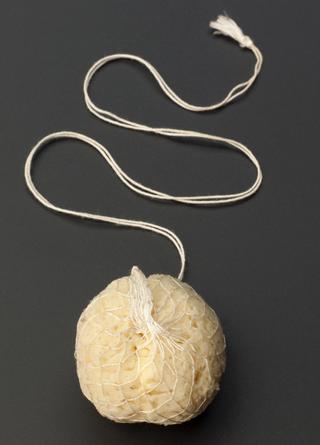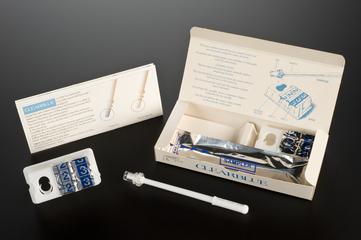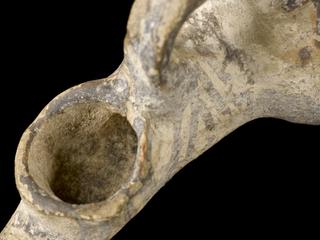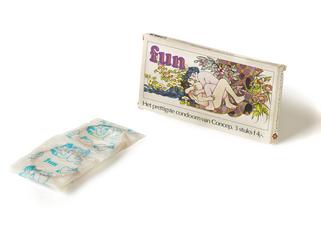
Hand-knitted hat made for premature baby Sophie Proud
- Made:
- 1996 in Newcastle upon Tyne




Hand-knitted hat made for premature baby Sophie Proud, Newcastle, England, 1996
In 1996, Sophie Proud was born when her mother, Janette, was just six months pregnant. Her twin sister Beth died shortly after their birth. Sophie, like many other premature or sick babies, spent a significant amount of time in neonatal intensive care. Filled with incubators and other medical equipment, neonatal intensive care is a difficult environment for many parents. It is often not what they expected while pregnant and it can make it feel harder for families to bond. Being able to dress their baby is a milestone for many families. It can give them a chance to connect with their baby and a sense of control. Hats, like this one made for Sophie, are often knitted by volunteers. Warm, well-fitting clothing helps regulate the temperature of very premature babies, making it possible for them to leave the incubator for short periods when they are well enough.
Sophie has since become a nurse on the neonatal intensive care unit where she was treated as a baby.
In the UK, babies are considered premature when they are born before 37 weeks gestation. Medical advances have improved the care of all premature babies and in particular have increased the chances of survival in very premature infants. However, longer-term outcomes are almost impossible to predict.
Details
- Category:
- Obstetrics, Gynaecology & Contraception
- Object Number:
- 2018-496
- Materials:
- textile
- type:
- hat
- credit:
- Donated by Janette Proud




